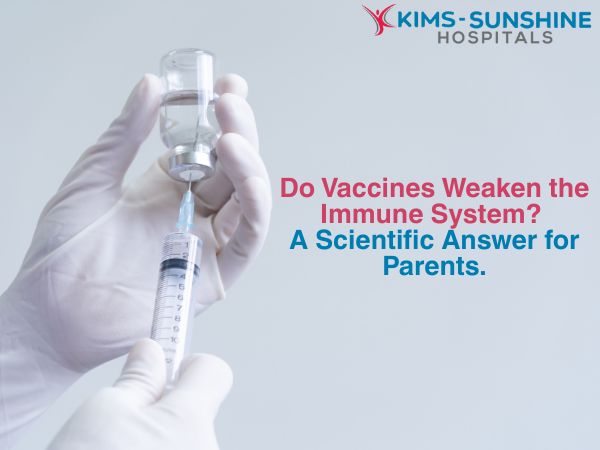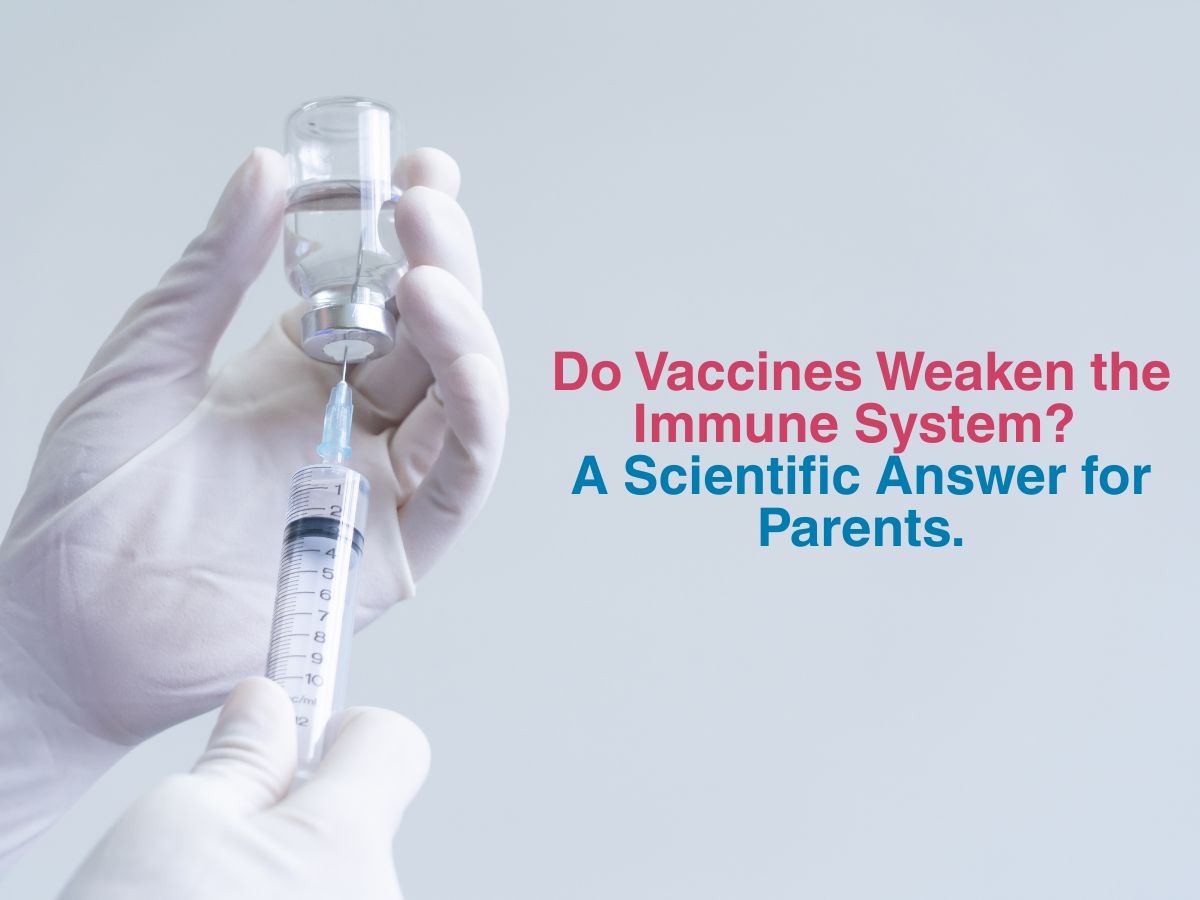
Do Vaccines Weaken the Immune System? A Scientific Answer for Parents
Do Vaccines Weaken A Child’s Immune System Over Time?
The question often sits like a quiet cloud in many Indian households, “Are vaccines too much for my baby?” Let us look closer. A child’s immune system is not a blank slate waiting to be scribbled on. It is a bustling marketplace, already trading with hundreds of bacteria and viruses from birth. Even as they are laying in a cradle, their immune system is negotiating, identifying, defending and constantly learning.
Contrary to fear, vaccines do not overload the system. In fact, the number of antigens (the bits that teach the immune system) in today’s vaccines is far fewer than what babies encounter crawling on the floor or teething toys. Here’s a twist of truth: illness is what truly overwhelms the immune system. Not vaccines. A real measles infection can suppress a child’s immunity for months. The vaccine? It teaches the same lesson without hurting so much.
Immune System Response After Vaccination Explained
After a vaccine enters the body, it mimics an enemy, but it’s disarmed. The immune system rises, examines the intruder, reacts and then builds memory cells. These cells are sharp-eyed, fast-moving defenders that lie in wait like seasoned sentinels. So, when the real virus or bacterium tries to enter, it’s not a surprise ambush; it’s a familiar face. The immune system strikes quickly, saving the body from danger without panic. This learning doesn’t weaken the system. It strengthens its reflexes, tones its judgement and improves its aim.
Does Giving Too Many Vaccines Affect Baby’s Immunity?
This fear comes from a well-meaning place. “If a little is good, could too much be harmful?” parents wonder. But the immune system is not a bucket that overflows when full. It’s more like a sieve, constantly filtering, sorting and processing thousands of foreign substances every day. A handful of vaccines simply join that steady stream. Let’s take India’s immunisation schedule. By age one, a baby receives vaccines against TB, polio, hepatitis, diphtheria, rotavirus and more. It sounds like a lot. But consider this: with every breath, every kiss on the cheek from a visiting relative and every stroll in a park, a baby is exposed to hundreds or even thousands of new microbes. Vaccines are drops in an already swirling sea, except they are clean, measured, and meaningful. Multiple vaccines don’t confuse the immune system. They train it with different drills, like a military camp preparing its soldiers for varied terrains.
Vaccine Myths Vs Facts About Immune Health
Myth: Natural immunity is always better
Truth: Natural infections can leave behind complications, scars or worse. Vaccines offer the same protection but with none of the scars.
Myth: Vaccines contain harmful chemicals.
Truth: Ingredients in vaccines, like stabilisers, preservatives – are present in microscopic amounts, often lower than what’s found in common food or water.
Myth: Too many vaccines weaken the immune system.
Truth: A baby’s immune system is already fighting countless invaders daily. Vaccines are a structured, scientific addition.
Myth: Side effects mean harm.
Truth: Mild fever, redness or tiredness are signs the immune system is doing its job. It’s learning, stretching and responding.
Conclusion
Being a parent means living with a hundred silent fears. You wonder if you’re feeding them right, soothing them right and protecting them enough. Vaccines often become part of that inner conversation: “Am I helping, or harming?” But here’s the honest truth: vaccines are one of the most powerful gifts you can give your child. Not just for today, but for tomorrow. In a country like India, where infectious diseases still linger like uninvited guests, vaccines are not just a medical decision. They’re a quiet shield and a measured promise for a safer future.







